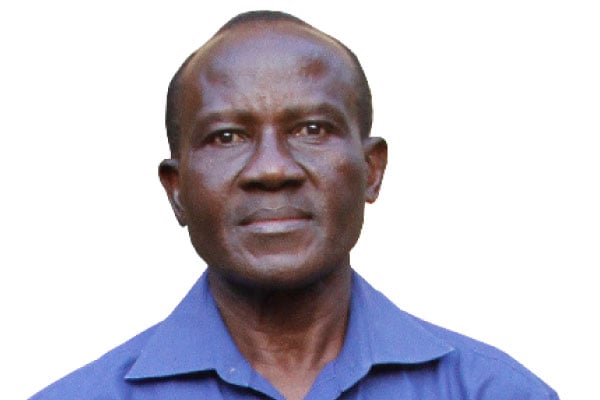Land and spoils of the NRM revolution

Author: Alan Tacca. PHOTO/FILE
What you need to know:
- Mr Alan Tacca says: Rulers should not hand out free wealth at the expense of the other citizens.
When President Museveni appoints someone from outside his family or Bush War circle to a difficult office, you cannot always be sure whether he wants performance in good faith. Sometimes he mischievously condemns an appointee to sweetened misery.
For instance, the concoction in Ms Beti Kamya’s new chalice smells like poison. As IGG, her punishment will be instructing subordinates more qualified than her when to go through the motions of fighting corruption without shaking the pillars of the vampire state.
With indicators like half of the Global Fund celebrities of 15 years ago now returning or being elevated to Cabinet, the new IGG’s self-humiliation will be easy.
As the new minister of State for Lands, Sam Mayanja’s brief is more complex.
Does Museveni genuinely want Mayanja to address the injustice and uncertainty around land ownership across the country; or does he want to use Mayanja in a scheme to dispossess and emasculate further the once-powerful landed interests in the central region, and to accelerate the shady acquisition of land in the region by rich political opportunists and Asian industrialists?
There is no need for a hurried answer. The truth will be gradually revealed.
Fortunately, Mayanja talks a lot; which is good, for we get to know what he thinks; or at least what he wants us to think he thinks. He will certainly give us more than what he has already said in Sunday Monitor (July 4), Ono Bwino (July 8-11) and other places.
But giving Museveni and Mayanja time does not mean suspending questions about their general guiding principles.
Mayanja is clearly obsessed by the injustice with which the (British) colonial government dished out large chunks of ‘Mailo’ land to chiefs in Buganda to secure their cooperation 120 years ago. He is bitter that this land, which they got “free”, now changes hands for huge amounts of money.
Even after acknowledging that most of this land has already passed through generations of inheritors to many ordinary buyers, and that many of the families of the long-departed chiefs now own almost nothing, his bitterness remains.
Now, if I understand the matter, a principled objection to the arbitrary use of State power to acquire serious assets should be upheld across the board.
Indeed, precisely because we (including Mayanja) have become enlightened about socio-economic justice, we must apply the principle to actions by today’s rulers before being diverted by the past.
The principle is that wealth should be acquired deservedly, and legally, for genuine services/labour rendered.
Rulers should not hand out free wealth, or merely buy support, or enrich the ruler(s)’ kinsmen at the expense of the other citizens.
Mayanja acknowledges that in 1900 Uganda was not a true cash economy. With no money, but with power over land, the governor secured alliances using land.
However, if land now means money, cash also easily converts into land. But the principle of getting deserved wealth does not disappear when rulers have power over the money of the State instead of over land.
In today’s cash economy, whose record tax collections the ruling elite always boasts about, the President dishes out big salaries and cash gifts to ministers and other functionaries, some of whom (in our eyes) deserve nothing.
If they use that money to buy large chunks of land, or cows, or company shares for that matter, as many do, is that wealth more legitimate than that acquired by chiefs under British rule? If not, should it be nationalised now or only after a 2086 revolution?
Mr Tacca is a novelist, socio-political commentator.
[email protected]




